Review for Shadow Makers
Introduction
I've always had a fascination for nuclear weapons, ever since I was a child, and that is no small reason why I sided towards the sciences when it came to my education. I think somewhere early on, I decided that I would build my own nuclear bomb, and naturally I'd have to have a Physics degree to do that. I just really wanted to see one of those go off (Note to those haemorrhoid inflicted, coffee breathed snoops at GCHQ: This was a short-lived childish whimsy, one that vanished when Chernobyl went off for real, and I found myself staying in more, and avoiding the milk.). But my fascination with nuclear weapons and nuclear power has never gone away, probably because I'm a child of the Cold War, when nations faced each other down with nuclear brinkmanship, where 'Mutually Assured Destruction', and 'Duck and Cover' were watchwords, where people were building bunkers in their back yards, and awaiting that television broadcast that would announce the end of the world in 4 minutes. Even today, the threat may have diminished with the collapse of the former Soviet Union, but it has also fragmented, pluralized, and become even more insidious, where countries like Pakistan and India now have nuclear bombs, where North Korea and Iran would like them, where small former Soviet Republics have inherited them, and where the new paradigm is one of suicidal terrorism, where the enemy has no convenient nation to mutually assure and destroy.
This precarious world that we now live in, came into being in the dying days of the Second World War, at 8:15 am on the 6th of August 1945, when the Enola Gay dropped a single, solitary bomb on Hiroshima. Of course the bomb didn't come into full bloom by itself, and the seed was planted back in 1905 when Einstein published his Special Theory of Relativity, equating mass to energy in his now famous equation. Once that was done, the creation of an atomic bomb was inevitable, it was just a matter of who did it first, and it really just required the appropriate conditions to arise that would countenance such an endeavour. World War II would provide that impetus, especially when it seemed at one point that the Axis powers were unstoppable, and that the US would be left standing alone, with the Nazis on one side, and the Japanese on the other. It was also clear that the Germans had the technical capabilities and scientific talent to at least attempt to construct such a device. The Americans would have to get there first. Shadow Makers is the story of the Manhattan Project that created the world's first atomic bomb, and tested it in New Mexico, as well as building the two devices that were dropped over Hiroshima and Nagasaki to end the war.
Nine months after Pearl Harbour in 1942, with Germany rampaging through Europe, and with Japan spreading through South East Asia after crippling the Pacific Fleet, it seems that the Unites States will soon be standing alone as the bastion of the free world. General Leslie Groves is all fired up to leave his Washington post and take the fight to the Japanese, when to his consternation he is put in charge of a bunch of egg-heads, tasked with creating a weapon to end all wars. His indignation fades when he learns of the potential of nuclear weapons, and he realises that he needs the right man to marshal a collection of wayward bohemians into a single focused group, committed to winning the war. That man is physicist J. Robert Oppenheimer, a brilliant, driven, and arrogant man, who can see the possibility of acclaim and accolades that succeeding in such an endeavour can bring. He advises a pressure cooker environment, with the scientists and engineers removed to an isolated location in New Mexico, the stress kept high to force the creative process into overdrive. But the freethinking academics and the secrecy driven military aren't a natural fit, and from the beginning there is friction, and all the while the deadline to the project approaches.
Picture
Shadow Makers gets a 2.35:1 anamorphic transfer from Paramount that is clear, sharp, and with strong colours. The film was made in 1989, so there is a wee bit of grain apparent throughout, but never enough to annoy. The film is also remarkably free of print damage and signs of age, and the slight aliasing visible at times is just an indication of the limits of DVD resolution. It's a fine transfer and the film is done full justice by it. It's a splendid, period piece, and the production design oozes through, with warmly lit sets, a lush, golden palette, and some splendid locations.
Sound
You have a choice between DD 5.1 English, and DD 2.0 Surround French, German, Spanish, and Italian. There are more subtitle tracks than I would care to mention, and as you would expect, I opted for the original language track. It's something of a glorified surround track though, with the surrounds really used only for music and ambience. Otherwise it's very much a front focussed piece, with an emphasis on dialogue, which is clear throughout. Ennio Morricone's music is effective, but understated. It works very well with the film, but doesn't really stick in the mind afterwards.
Conclusion
In the US this film was called Fat Man and Little Boy after the first two bombs dropped on Japan, but here in the UK, it was given the more prosaic (but given the effect on the victims of the bombs) more apt title of Shadow Makers. It's also a true story, and normally the words 'based on a true story' would have me reaching for the remote, having seen the quality of the 'true stories' that make it to afternoon schedules on Channel 5. This is different though, Shadow Makers is a true story that is worth telling, as it tells of those events that shaped the world that we live in today. No matter where you stand on nuclear power, or on nuclear weapons, this is a film that you have to see, if only because it encapsulates all the issues that drive the debate even now, sixty-five years after the first atomic bomb was detonated.
Naturally I love this film because of the science. It appeals to that lapsed physicist in me, and seeing how accurately the science is recreated on screen is a particular joy, in an industry that usually rewrites the laws of physics to make the plots work. This actually happened, the problems that these scientists and engineers faced were real, the solutions that they came up with were authentic, and seeing that none of the science is dumbed down for the audience is unexpected. It may be relegated to the background, it may be secondary to the emotional content of the script, but it is close to the real thing, close enough that it lends an air of realism to the piece that goes far beyond what these dramatisations usually aim for.
But a science lecture this isn't. Where Shadow Makers really hits the spot is in the characterisations. It's a two-hander, with General Leslie Groves and J. Robert Oppenheimer taking centre stage. Naturally with Paul Newman as Groves, you have excellence from the get go. His Groves is a gruff, antisocial curmudgeon of a man, someone who bulldozes his way to what he wants, and is willing to bully, threaten and emotionally blackmail if necessary, all to achieve his ultimate, patriotic aim of delivering a weapon to win the war. He's career military, but working with these non-military scientists, he has to think outside the box. The wonder of this film is Dwight Schultz as Oppenheimer, an inspired bit of casting as he plays the flamboyant, ambitious, arrogant and equally driven scientist to perfection. The film is about the clash of these two antipathetic personalities, two people who can't understand each other, live in different worlds, move in different circles, quite obviously have no respect for each other, but are willing to use each other, and need each other to obtain their ultimate goals. It's a personality clash that drives the movie, and is every bit as volatile as the fissile material they are playing with. That Newman shines in the role is given, it's that Schultz matches him in the acting stakes that is a little surprising, and certainly elevates this film.
Of course the film isn't just centred on these two, and there is a lot more going on besides. What I like about the film is that it provides the context for the nuclear weapons debate, informs of the historical circumstances that resulted in the creation of the bomb. With the Allied powers on the back foot, an ace card was needed. With the suspicion that the enemy was also working on the bomb, it became a race to develop it, and with the war raging, secrecy and paranoia was inevitable. Already by the early forties, Communists were lurking under every rock, and Oppenheimer's own position was considered a security threat, given that he had a mistress with known Communist sympathies. The film also covers why the weapons program was pursued to its conclusion, even following the defeat of the Nazis and the overtures to a conditional surrender sent by the Japanese. There were deals and manipulation of the truth, and of course the need to justify an expenditure of $2 billion during the height of a war. It makes for absolutely fascinating viewing.
Then again it is a Hollywood 'true story', which means that there is a degree of compression of the timeline, and plenty of dramatic licence. Scientists usually have theories and calculations and possibilities all worked out prior to the realisation stage of a project, but we do get some major breakthroughs occurring on screen here, that in fact happened in gentle academia some years previously. Also the character of Michael Merriman, played by John Cusack is a fictional creation, a sort of everyman character that provides a viewer insight into what the Manhattan Project was all about through his diary entries. There is also his dilemma when the deadline for delivering the package approached. What happens to the character is one of the dramatic crescendos of the film, but when I looked him up in the encyclopaedia, naturally he wasn't there, which left me doubting the events that occurred in the film. It turns out that Merriman is based on two real life scientists on the Manhattan Project, Harry K. Daghlian and Louis Slotin. Both were involved in criticality accidents working on plutonium spheres. Daghlian in September 1945, a few weeks after the end of the war, and Slotin a year later, although the accident that Merriman suffers is more similar to Slotin's. No such accident happened prior to the Trinity test though.
As a dramatisation of the project to create the world's first atomic bomb, Shadow Makers is essential viewing as it is, but the two central performances by Paul Newman and Dwight Schultz make this a stunning piece of filmmaking. The DVD may be out of print now, but it's definitely worth sniffing out a copy.
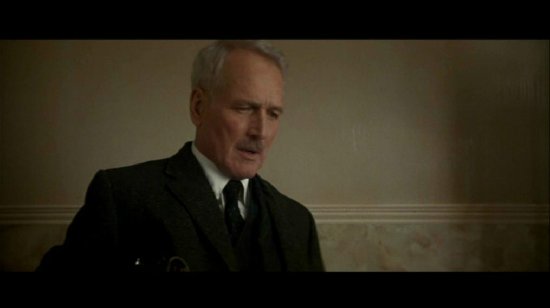
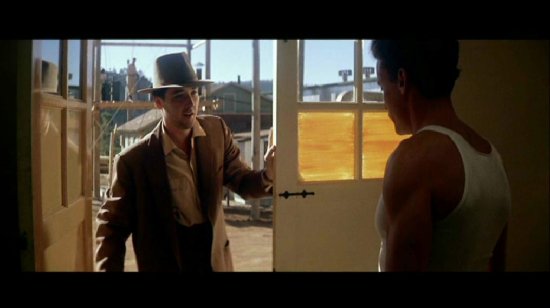
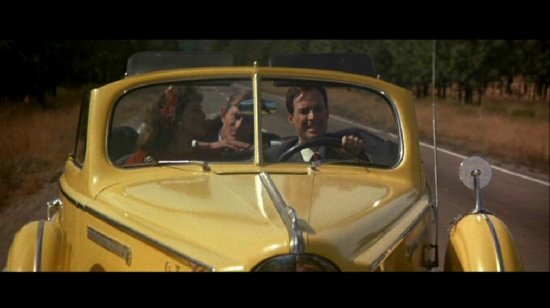
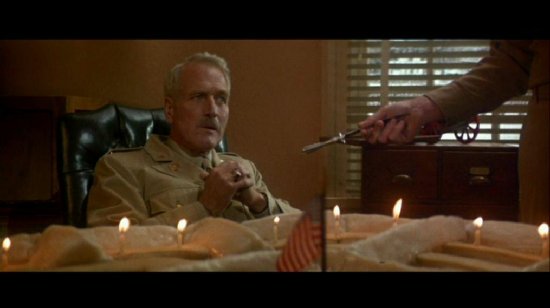
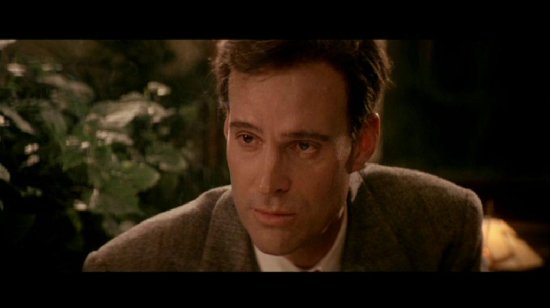
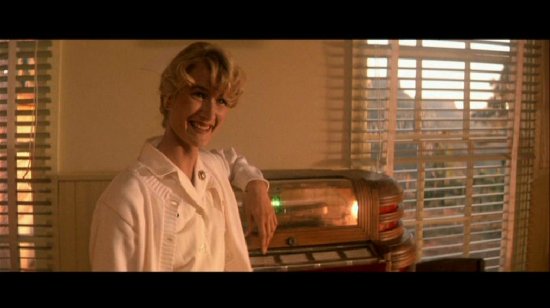
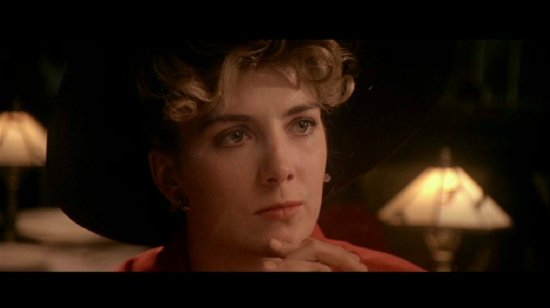
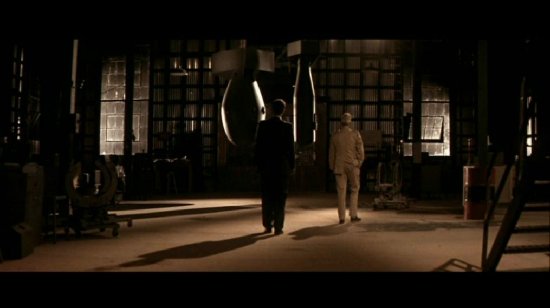
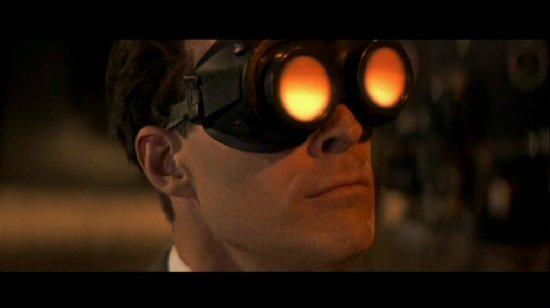
Your Opinions and Comments
Be the first to post a comment!